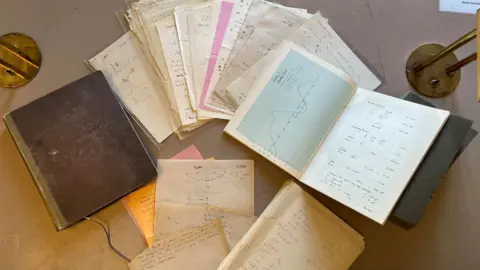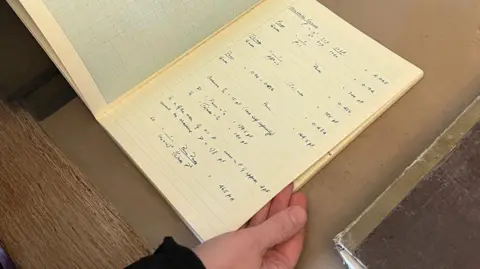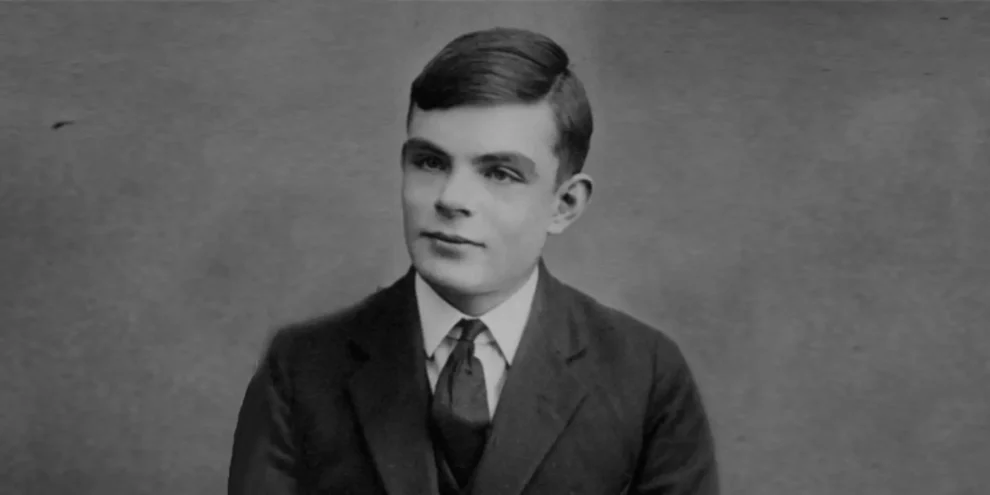A collection of rare documents by World War Two codebreaker Alan Turing have been saved for the nation.
Last year, a temporary export bar was placed on the wartime project writings to prevent them being taken abroad.
A successful campaign was launched to keep the papers on home soil, which were described by the government as some of Turing’s most “inventive, secret, and overlooked work”.
Culture Secretary Lisa Nandy has announced that the documents will join the largest collection of Turing artefacts at King’s College, Cambridge.
“This is a powerful example of what can be achieved when private and charitable sectors come together,” she said.
“This collaboration has ensured that these treasures will be preserved for years to come.”
In the UK, significant cultural objects require a licence to be exported.
Items considered too important to leave can be placed under a temporary export ban, which allows British buyers time to raise funds to purchase the items instead.
Once digitised, they will become part of the Turing Papers online archive, freely available to scholars.

The papers consist of two bound notebooks and six separate gatherings of loose sheets
The papers, valued at more than £397,000, relate to the Delilah project, which developed a portable encryption system – or voice scrambler – to protect secrets during military operations.
Turing worked on the project at Hanslope Park, near Milton Keynes, in 1943 following his groundbreaking work on the Enigma machines at Bletchley Park.
The documents consist of more than 40 pages of unpublished notes written by Turing and colleague Donald Bayley.
Unpublished evidence of Turing’s work has rarely survived.

The papers comprise the notes of Turing, from 1912-54, and Donald Bayley, from 1921-2020
The project to save the documents was led by the Friends of the Nations’ Libraries charity.
Other donors included the National Heritage Memorial Fund and King’s College.
The algorithmic trading firm XTX Markets donated £250,000.
King’s College provost Gillian Tett said: “Alan Turing’s work laid the foundations of computer science, artificial intelligence and much of our modern world.
“We are honoured to house the Delilah papers at King’s and are deeply grateful to our partners in this endeavour.”
Turing arrived at King’s College as an undergraduate in 1931 and was made a fellow in 1935.
The Turing Archive was founded in 1960 following a donation of his papers by his mother, Sara Turing.
Turing died of cyanide poisoning in June 1954. His death was thought to be suicide.









